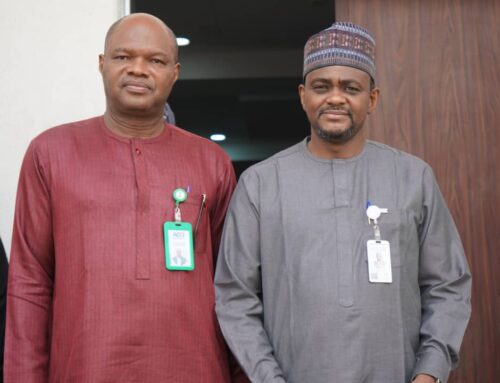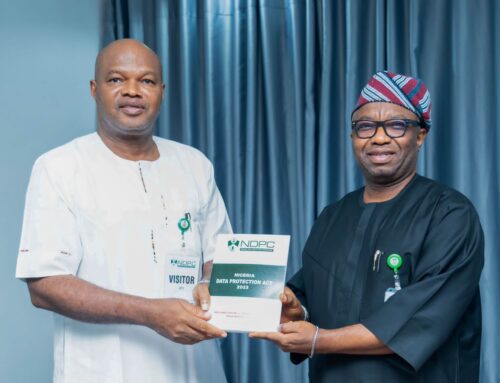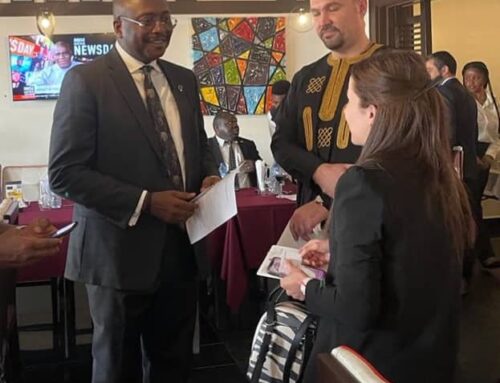By Prince Adetokunbo Kayode
Livestock supports the livelihood of about 1.3 billion people in developing countries and contributes up to 30 per cent of the agriculture Gross Domestic Product (GDP) of countries in sub-Saharan Africa.
This is achieved through the provision of meat, milk, wool, hides and skins in activities that have great value chains attached to each of them.
Curiously, demand for livestock products in sub-Saharan Africa is increasing rapidly have been fueled by growing population, urbanization and improved incomes leading to shifts in diets, consumption patterns and dietary support offered by high value commodities such as meat and milk.
Whereas the Nigerian landmass and growing population would have been adequately harnessed and mobilised and targeted to work in livestock value chain development, a wrong approach has been deployed; by federal government attempting to be the sole player in this area. Under this circumstance, Nigeria’s hygienic beef requirement and domestic demand is hardly.
As much that this is the case, the livestock sector is believed to have made 6.7% contribution to GDP with 90% of cattle population in the country based in the north during wet season but spilling over to other states of the federation in dry season.
The livestock sector is confronted with array of challenges ranging from low quality of animal species and stock; sub-optimal animal husbandry practices; poor animal health (pest and disease management) and low quality of livestock feed.
Limited market and value chain integration; sub-optimal supportive infrastructure ( cattle markets, abattoirs, processing facility etc.); limited availability of public services and weak institutional and enabling environment are also very important challenges hampering the sector.
On the risk side, exposure of livestock to climate change, droughts, floods, pest and diseases, conflict and insecurity; limited social safety nets; scarce livelihood diversification options are scarce; and low capacity operators tops the list.
Moreover, in realisation of the immense potentials and opportunities, a private-sector driven Nigeria Livestock Master Plan(NLMP) towards cleaning the Augean’s table and transforming it by guiding investments in major sub-sectors has been advanced. Partners to provide the technical support and financial muscle have been secured from the Kyungpook National University of Korea.
In the Memorandum of Understanding (MOU) I signed on Wednesday, 17th July, 2019 in Korea, we laid the foundation for formal commencement of activities to that effect in which myself and Dr. Uyeh Daniel, a leading expert and Animal Engineer set the template. The MOU makes provision for funding a pilot organic animal feed production plant. The project will help Nigeria reduce by over 90% the search and indeed battle for wild grass and need to openly graze cattle, goats, sheep and so on. This is one critical step needed to restructure, reform and modernize livestock sector in Nigeria, which was neglected.
The master plan is to be vision-driven, evidence-based road map with investment plans that seeks to improve animal productivity and production, as well as increase the value addition of key livestock value chains.
The ultimate goal of NLMP is to establish a livestock sector, which shall be commercially run, modern and sustainable, using improved and highly productive livestock to ensure food security, improved income for households and the nation while conserving the environment.
The ambitious plan lays out several strategies to boost the livestock sector including the establishment of more ranches for meat cattle; growing more feed and increasing the coverage of vaccines. The NLMP involve more and better capacity building programs to improve technical expertise in the sector, and increasing industries for meat production, milk processing and leather and other accessories processing.
The short and medium terms specific targets are to: develop Livestock value chain companies; reduce poverty; achieve food and nutritional security; contribute to economic growth (GDP); exports and foreign exchange earnings; and contribute to climate mitigation and adaptation.
The plan is to set up livestock companies at least one per state and imbue it with capacity to specialise in at least one of the several value chains across the livestock sector.
Partnership will cut across government, chambers of commerce and industry, development finance partners, banks, independent and inter-dependant micro or small business segments.
Establishment of modern ranches; feeds supply; genetics work to improve breed through artificial insemination, introduction of exotic breed-cattle fattening producers and genetic specialists as well as animal health are integral parts of the master plan.
Marketing, cattle holding operators, abbatoirs, meat fans operators, diary development; milk processing plants, diary farms, veterinary centres and diagnostics laboratories; breeding improvement centres, new semen production centers, bull centres, cross breed heifer multiplication farms and milk collection/chilling centres are critical elements of the project.
Similarly, establishment of yoghurt, ice cream and cheese production plants, diary technology training schools are set to be achieved.
In the area of livestock waste chains, skin will be linked to leather, bags, shoes firms while intestines with organic fertilizers manufacturers just as blood will feed fish mill companies while hoofs and horns will be raw materials to calcium pharmaceutical enterprises.
In this scheme, there will be zero waste. That is the way to go. It is doable, possible and profitable.
By Prince Adetokunbo Kayode
Prince Kayode, CON., SAN is the President of Abuja Chamber of Commerce and Industry (ACCI) and can be reached via: kaylaw1@yahoo.com








Leave A Comment